Abstract
The effect of raising the airways resistance of 56 normal newborn babies by blocking alternate nostrils was studied by means of oesophageal intubation and the trunk plethysmograph. Increased resistance was associated with reduced respiratory rate and ventilation. A comparison was made of the response in different sleep states. In rapid eye movement (REM) sleep respiratory tidal volume decreased on blocking, there was no increase in the work of breathing and the fall in minute volume was greater than in non-REM sleep where tidal volume and minute work increased on blocking. These responses may be relevant to the sudden unexpected death syndrome in infancy, and to the management of normal newborns.
Full text
PDF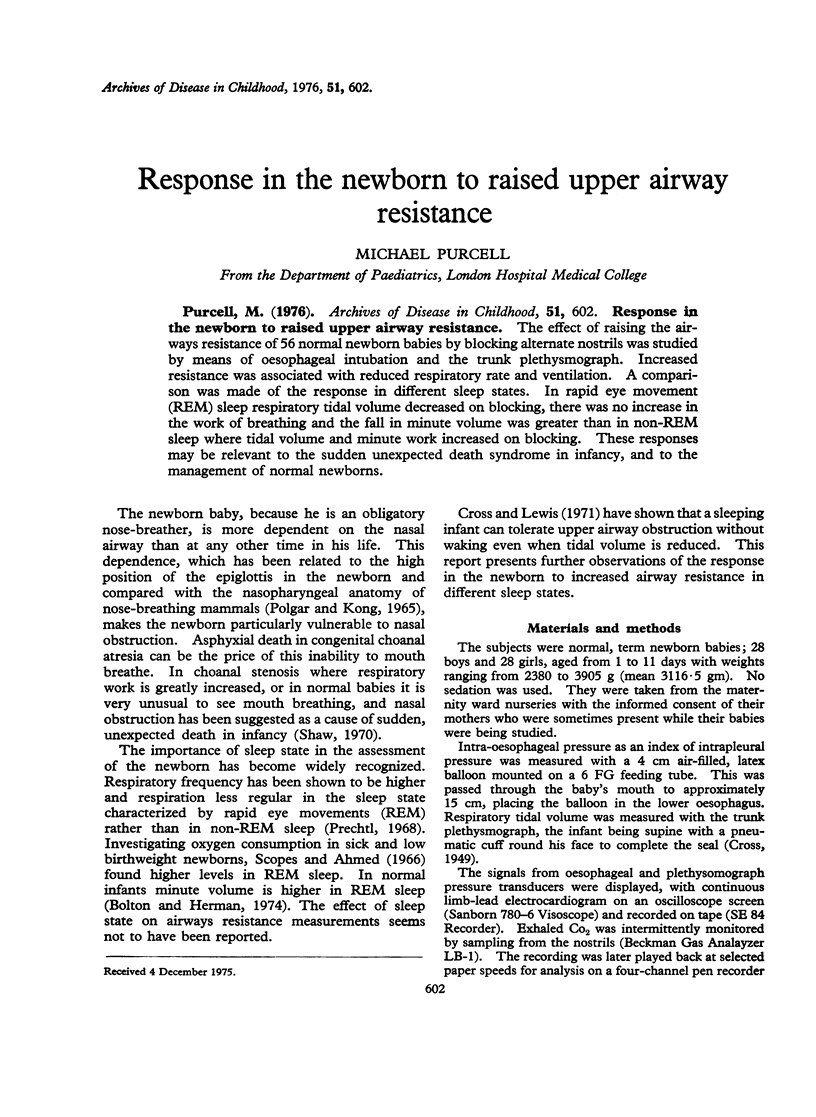
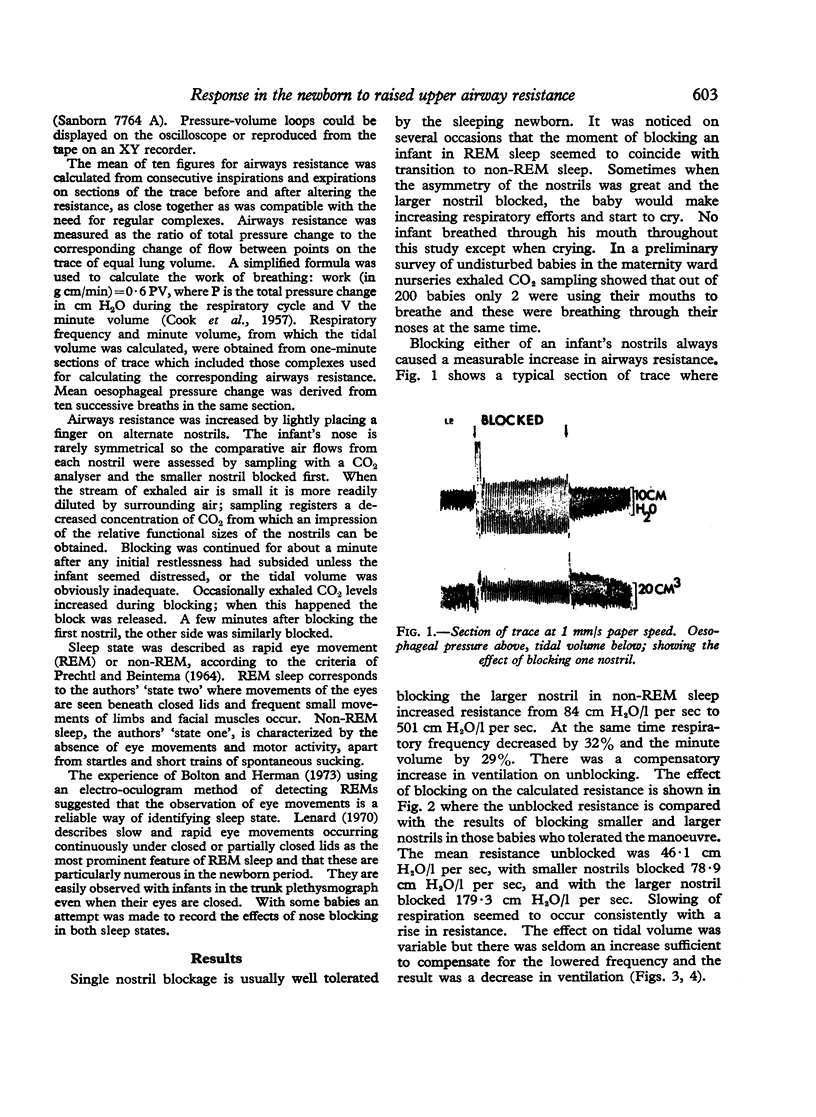
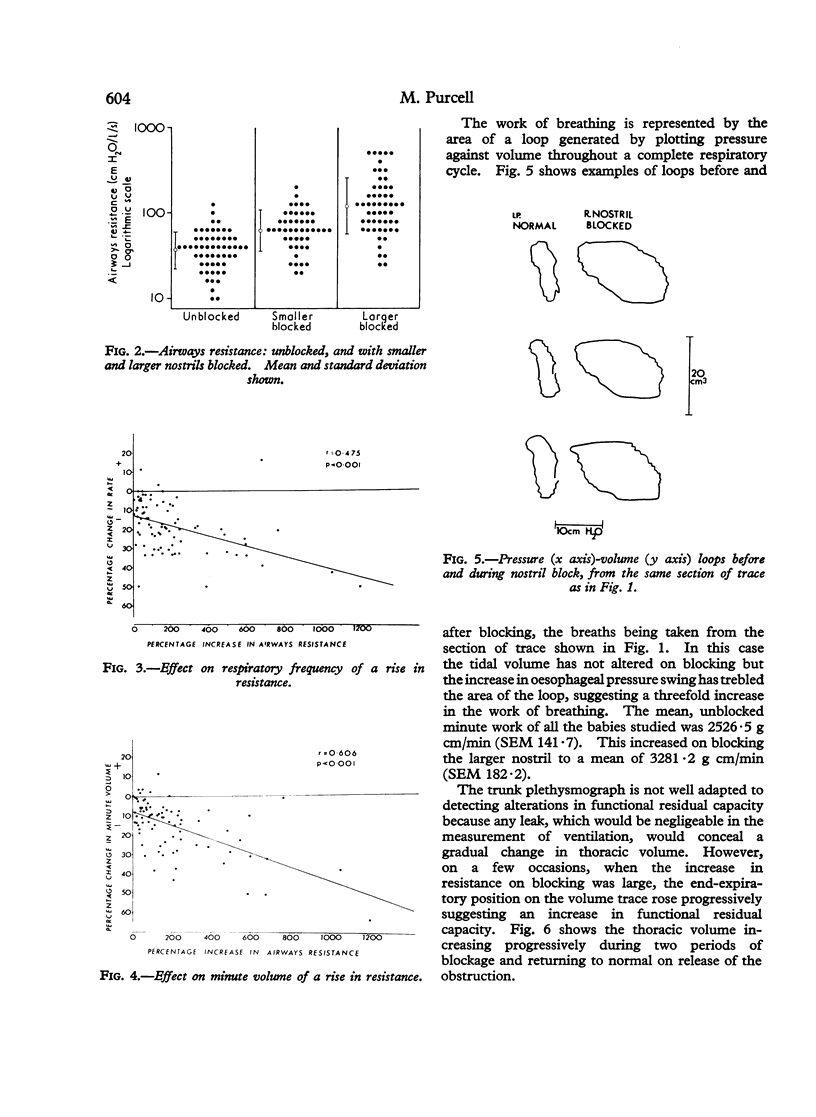
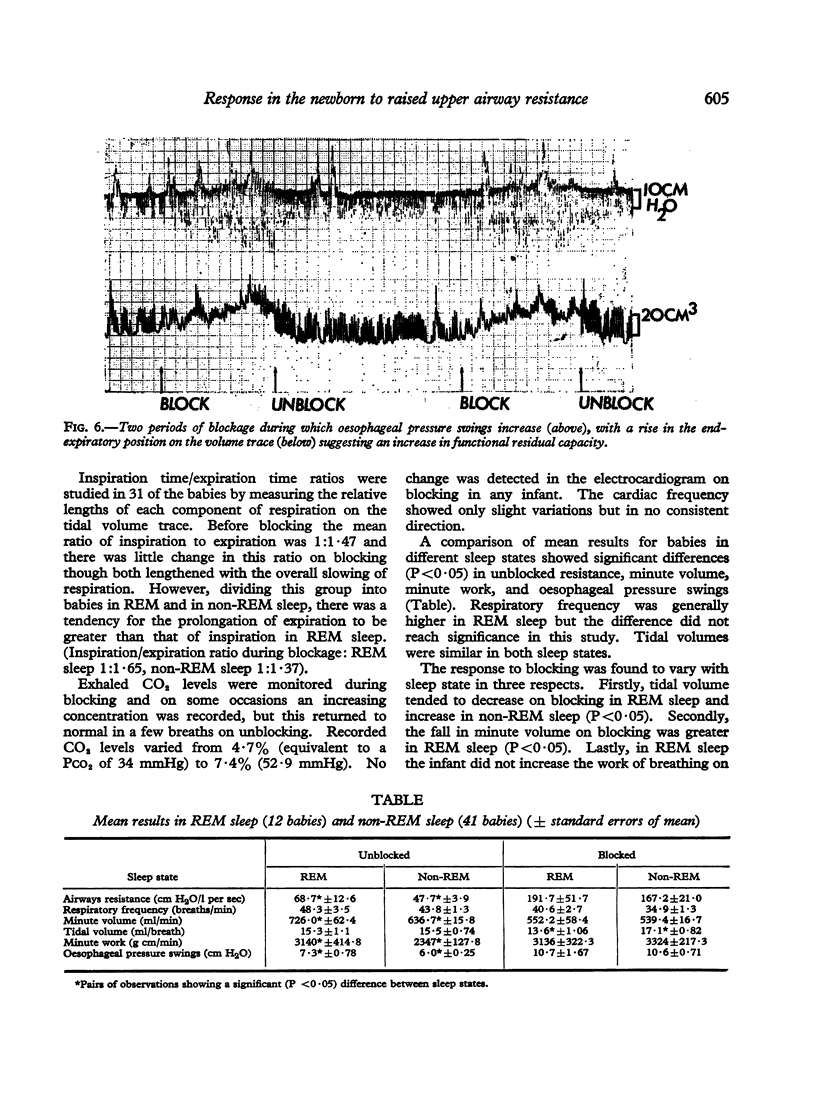
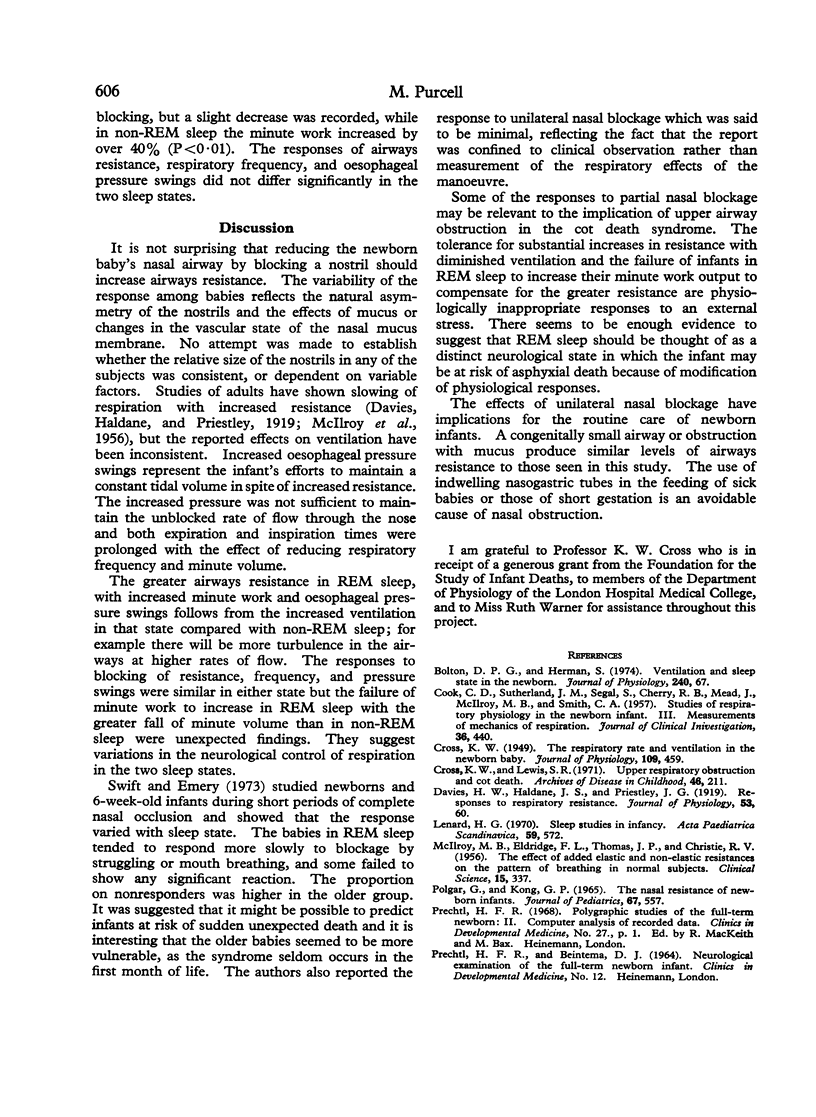
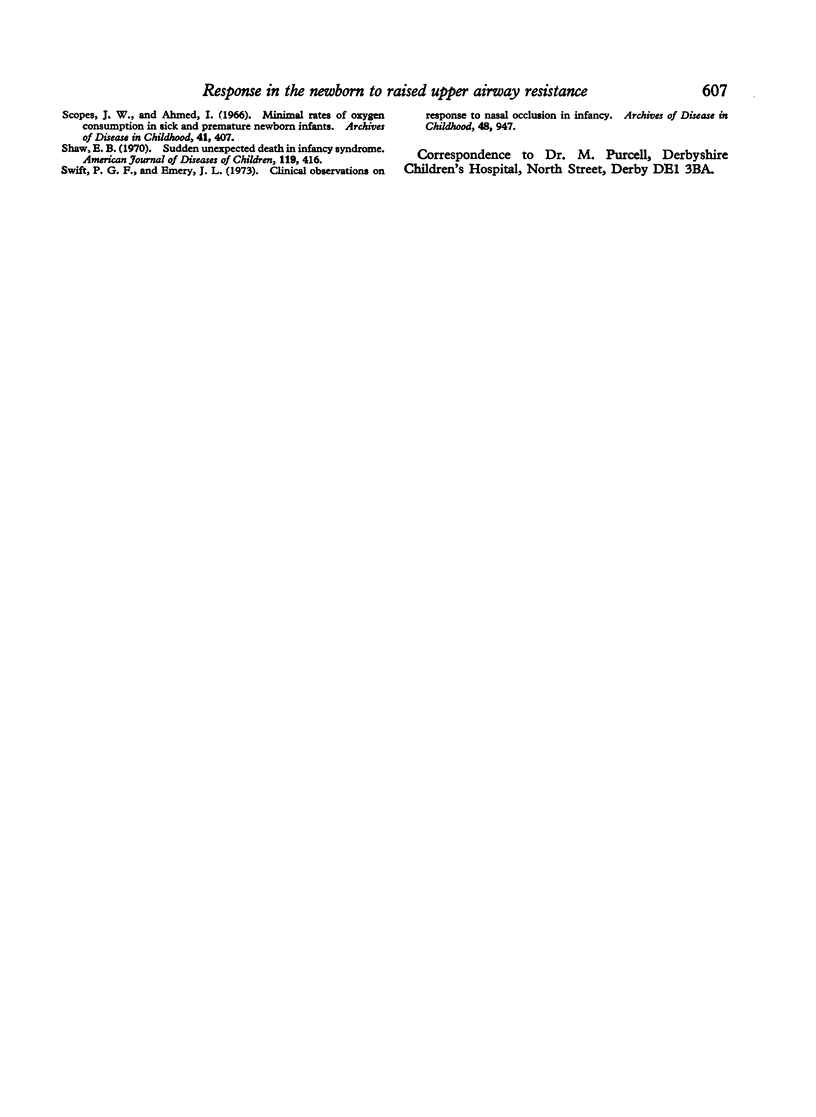
Selected References
These references are in PubMed. This may not be the complete list of references from this article.
- Bolton D. P., Herman S. Ventilation and sleep state in the new-born. J Physiol. 1974 Jul;240(1):67–77. doi: 10.1113/jphysiol.1974.sp010599. [DOI] [PMC free article] [PubMed] [Google Scholar]
- CHRISTIE R. V., ELDRIDGE F. L., MCILROY M. B., THOMAS J. P. The effect of added elastic and non-elastic resistances on the pattern of breathing in normal subjects. Clin Sci. 1956 May;15(2):337–344. [PubMed] [Google Scholar]
- COOK C. D., SUTHERLAND J. M., SEGAL S., CHERRY R. B., MEAD J., MCILROY M. B., SMITH C. A. Studies of respiratory physiology in the newborn infant. III. Measurements of mechanics of respiration. J Clin Invest. 1957 Mar;36(3):440–448. doi: 10.1172/JCI103441. [DOI] [PMC free article] [PubMed] [Google Scholar]
- CROSS K. W. The respiratory rate and ventilation in the newborn baby. J Physiol. 1949 Sep;109(3-4):459–474. doi: 10.1113/jphysiol.1949.sp004409. [DOI] [PMC free article] [PubMed] [Google Scholar]
- Cross K. W., Lewis S. R. Upper respiratory obstruction and cot death. Arch Dis Child. 1971 Apr;46(246):211–213. doi: 10.1136/adc.46.246.211. [DOI] [PMC free article] [PubMed] [Google Scholar]
- Davies H. W., Haldane J. S., Priestley J. G. The response to respiratory resistance. J Physiol. 1919 Sep 5;53(1-2):60–69. doi: 10.1113/jphysiol.1919.sp001859. [DOI] [PMC free article] [PubMed] [Google Scholar]
- Lenard H. G. Sleep studies in infancy. Facts, concepts and significance. Acta Paediatr Scand. 1970 Sep;59(5):572–581. doi: 10.1111/j.1651-2227.1970.tb16810.x. [DOI] [PubMed] [Google Scholar]
- Polgar G., Kong G. P. The nasal resistance of newborn infants. J Pediatr. 1965 Oct;67(4):557–567. doi: 10.1016/s0022-3476(65)80425-5. [DOI] [PubMed] [Google Scholar]
- Shaw E. B. Sudden unexpected death in infancy syndrome. Am J Dis Child. 1970 May;119(5):416–418. doi: 10.1001/archpedi.1970.02100050418006. [DOI] [PubMed] [Google Scholar]
- Swift P. G., Emery J. L. Clinical observations on response to nasal occlusion in infancy. Arch Dis Child. 1973 Dec;48(12):947–951. doi: 10.1136/adc.48.12.947. [DOI] [PMC free article] [PubMed] [Google Scholar]


